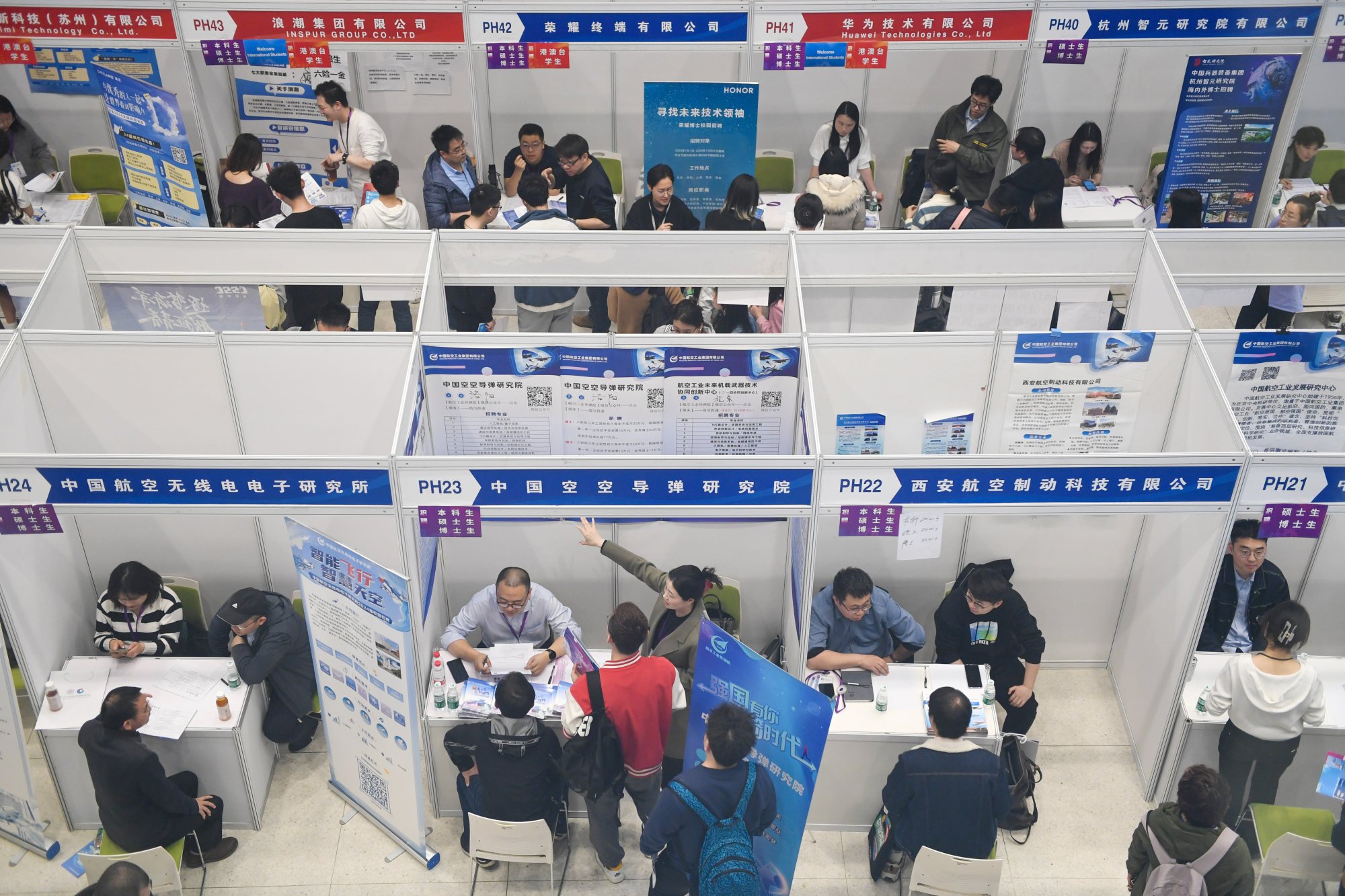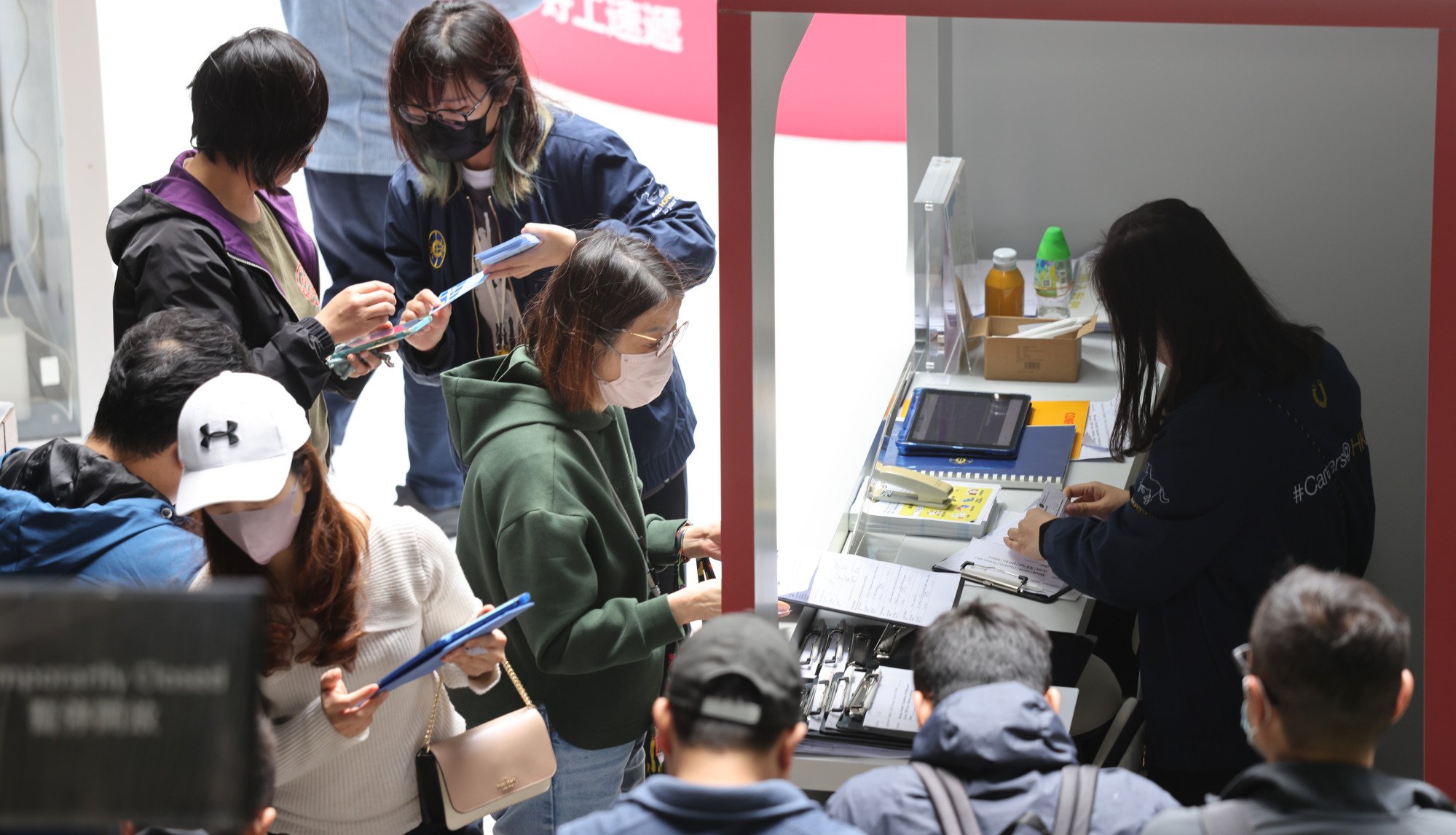
‘Lying flat’, ‘difficult to work with’: Gen Zers on some wrong ideas about young people
- Generation Z are seen by many as difficult to work with and lacking motivation. New graduates and students talk about how they’re perceived
Summer is here and it is internship and graduation season for another batch of Generation Z students.
Savannah Lai, who has just completed her third year studying law at City University of Hong Kong, has packed her schedule with internships and exchange programmes.
With her ultimate goal being either working for the city’s Department of Justice or serving as a barrister-at-law, there is no slowing down for her.
“I feel like I don’t need a transition period from graduation to the start of a full-time position, because I already established a routine of studying and doing internships during the academic year, which feels similar to working,” says the 20-year-old, who will graduate in 2025.
But not all of her contemporaries are as ready for the real world as she is.

The Covid-19 pandemic may have played a part in such decisions. According to the United Kingdom’s Higher Education Statistics Agency, postgraduate applications in the UK increased by 16 per cent between 2020 and 2021.
For Tracy Lam, 22, a master’s student at the University of Hong Kong, the decision to spend another year studying philosophy is no delaying tactic but a necessity to help her realise her long-term goal of working in public policy.
A lot of people my age are no longer craving much attachment to their role, and instead just want to fulfil their duty and leave
She acknowledges that many of her friends are going down that postgraduate education route. “The master’s degree is actually the new bachelor’s degree,” she says.
Adam (not his real name), a Hongkonger who has just graduated with a degree in English and Russian in the UK, is still on the lookout for a full-time job there. While the 21-year-old has not settled on a definite plan, he understands the inevitability of adulthood.
“Who is ever going to be fully ready anyway? At some point you have to bite the bullet and get to it,” he says.

Generation Z, the people born after 1995 and before 2011, will account for over a quarter of the workforce by 2025, according to the World Economic Forum.
A recent report in the journal Educational Administration Theory and Practice says Gen Z employees value flexibility and work-life balance more than previous generations.
A 2023 poll by ResumeBuilder.com, an online resource for jobseekers, revealed that 40 per cent of managers found Generation Z to be less motivated and easily distracted.
In China, the term tang ping, which translates as “lying flat”, has emerged to describe a rejection by young people of societal pressures to overwork and overachieve in favour of a more low-key lifestyle. The term was one of the top trending memes in Chinese search engine Sogou in 2021.

Yet there are many Gen Zers who do not subscribe to this culture. Lai says the “lying flat” label can be an “overgeneralisation” and that many students, “from accounting to the arts”, still have ambitious academic and career goals.
Jennifer Huang, who graduated with a degree in mathematics from the University of St Andrews in the UK in 2022, is anything but unmotivated. The 24-year-old has always known that she wanted a career in investment banking despite the notoriously long hours.
“I understand that it has always been really competitive and tough to enter the industry [ …] but it is a good feeling to be rewarded for your hard work and entrepreneurship,” Huang says.
Adam has not lost motivation. “In theory, I can see myself subscribing to ‘lying flat’ [ …] but in reality, I think this term carries nuances of nihilism, and that means I have to fully let go of anything that serves a purpose in my life.
“I want to have something to hang onto, to have hope, and to recognise what my values and goals are.”

Both Lai and Huang say some people in their age group are rude and feel a sense of entitlement, with “quiet quitting” – doing the minimum necessary – and refusing to take on tasks they do not want a growing problem.
“A lot of people my age are no longer craving much attachment to their role, and instead just want to fulfil their duty and leave, unlike the sense of commitment and loyalty rooted in other generations towards their work,” Lai says.
Work-life balance, while not everyone’s top priority, is gaining in significance. Adam says the freedom to work on something he is passionate about is more important than the money he earns.
“Your worth is not solely determined by your employability,” he says, questioning the thinking of the more ambitious members of his generation.

